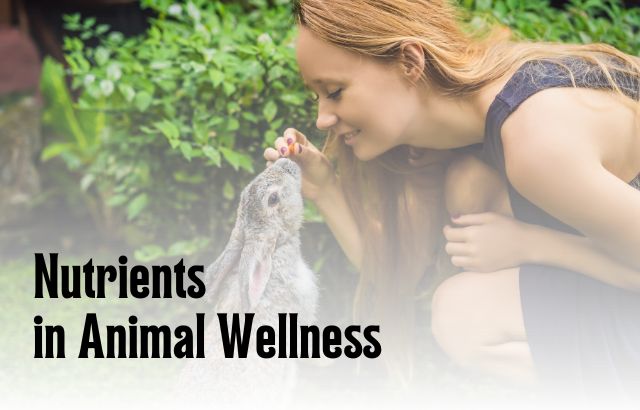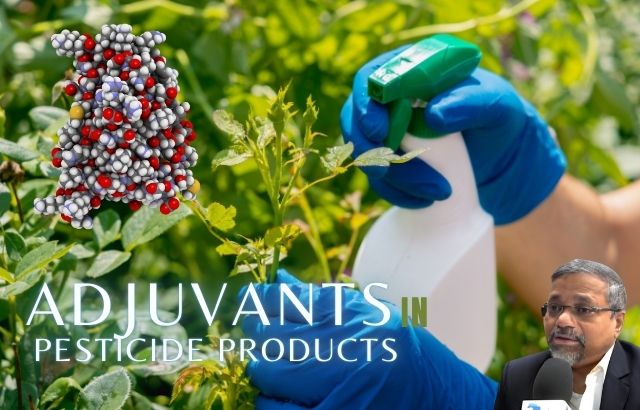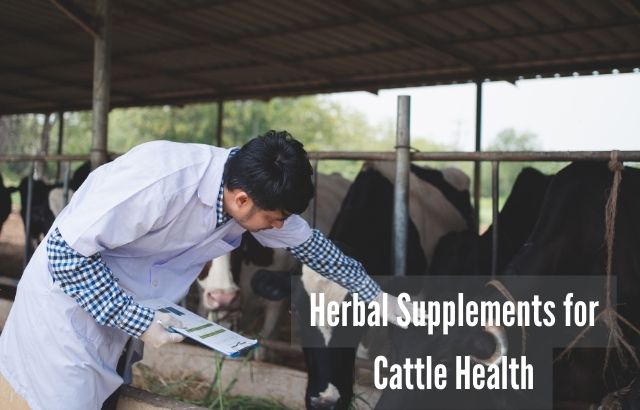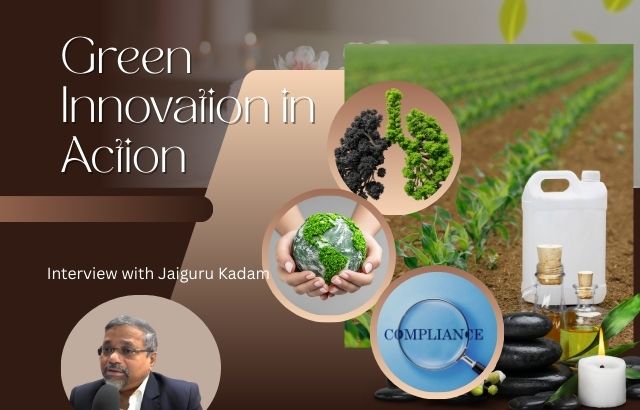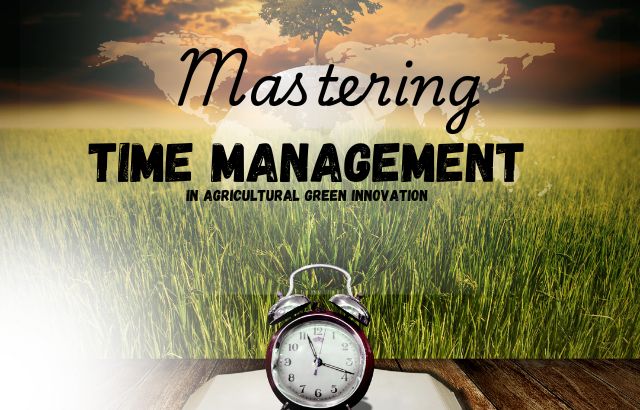Imagine a peaceful farm with animals happily munching on green grass. But did you know there’s a hidden story behind their meals? It’s about how the stuff in their food, called nutrients, keeps them strong and happy.
Let’s explore this hidden world together!
Meet the Helpers: Learning About Nutrients
Nutrients are like tiny helpers inside food. They do all sorts of important jobs to keep animals healthy. There are many kinds of nutrients, like vitamins and minerals.
Studies show that if animals don’t get enough of these helpers, they can have problems. For example, not having enough vitamin D can make their bones weak. And too much of some nutrients, like phosphorus, can also cause trouble.
Nutrients in Animal Wellness :Finding the Right Mix -A Balanced Diet
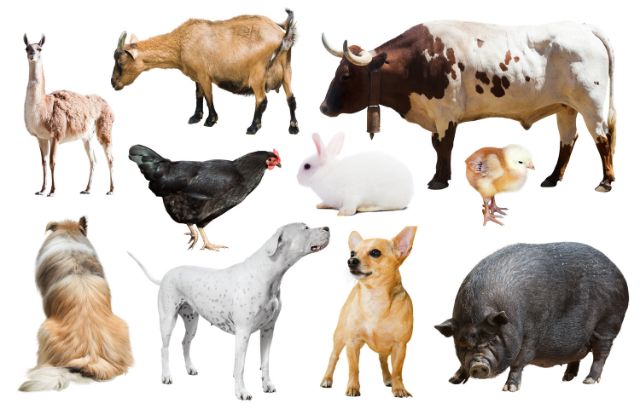
To keep animals healthy, they need a mix of different nutrients. It’s like making a yummy recipe with just the right ingredients. Researchers say that giving animals a balanced diet helps them live longer and happier lives.
But it’s not just about having the right nutrients. The kind of food animals eat also matters. Some foods give nutrients that are easy for their bodies to use, while others don’t work as well.
Nutrients in Animal Wellness-Looking Forward-What’s Next?
As we learn more about how food helps animals, we can find new ways to keep them healthy. From making special diets for each animal to creating new kinds of supplements, there’s a lot of exciting stuff happening!
But it’s important to always listen to what science tells us. By learning more and keeping up with the latest discoveries, we can make sure that every animal gets the best care possible.
In the end, understanding how food helps animals stay healthy is like discovering a secret superpower. With the right mix of nutrients, we can help our furry friends live their best lives!
Nutrients in Farm Animal Wellness:
- Holistic Nutrition: Emphasize a shift towards holistic nutrition strategies that prioritize the overall well-being of farm animals rather than solely focusing on productivity metrics. This approach considers the animal’s physiological needs, natural behaviors, and health maintenance, fostering better welfare outcomes.
- Functional Feed Additives: Explore the use of functional feed additives that not only support growth and performance but also enhance immune function, gut health, and stress resilience in farm animals. Incorporating natural additives like prebiotics, probiotics, and botanicals can contribute to a more robust and resilient animal population.
- Precision Feeding Technologies: Implement precision feeding technologies to tailor nutrition plans based on individual animal requirements, considering factors such as age, genetics, health status, and environmental conditions. This personalized approach optimizes nutrient utilization, minimizes waste, and promotes optimal growth and development.
- Nutrigenomics and Epigenetics: Harness the potential of nutrigenomics and epigenetics to understand how dietary components interact with genes and influence gene expression in farm animals. By uncovering these molecular mechanisms, researchers can design diets that promote desirable genetic traits, mitigate disease risks, and enhance overall wellness.
- Sustainable Sourcing and Production: Prioritize sustainable sourcing and production practices in the formulation of animal feed, ensuring the responsible use of resources and minimizing environmental impact. Sustainable feed ingredients, such as insect protein, algae, and food waste-derived products, not only support animal health but also contribute to a more environmentally friendly livestock industry.
Green Innovations Shaping the Future of Nutrient Management in Farm Animal Wellness
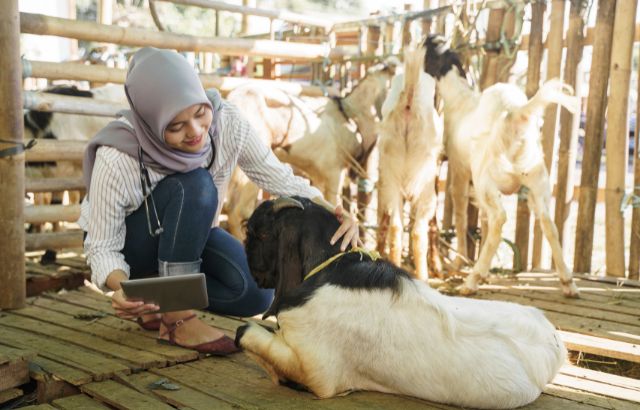
- Circular Economy in Feed Production: Implementing circular economy principles in feed production by utilizing agricultural by-products, food waste, and other organic residues as feed ingredients. This approach reduces reliance on conventional feedstocks, minimizes waste, and lowers the environmental footprint of feed production.
- Alternative Protein Sources: Embrace the development and adoption of alternative protein sources, such as insect protein, algae, and single-cell proteins, as sustainable alternatives to traditional feed ingredients like soy and fishmeal. These novel protein sources require fewer resources, emit fewer greenhouse gases, and alleviate pressure on ecosystems vulnerable to overfishing and deforestation.
- Precision Agriculture for Nutrient Management: Utilize precision agriculture technologies, including sensor-based monitoring systems and data analytics, to optimize nutrient management on farms. By precisely targeting nutrient application rates and timing, farmers can improve nutrient utilization efficiency, minimize nutrient runoff, and reduce the environmental impact of agricultural operations.
- Carbon Sequestration through Agroforestry: Integrate agroforestry practices into animal farming systems to sequester carbon, enhance biodiversity, and improve soil health. Agroforestry systems, which combine trees or shrubs with livestock or crop production, offer multiple benefits, including reduced greenhouse gas emissions, increased resilience to climate change, and enhanced animal welfare through shaded and sheltered environments.
- Biotechnological Solutions for Waste Management: Explore biotechnological innovations for efficient waste management on farms, such as anaerobic digestion, microbial fermentation, and bioconversion processes. These technologies can convert organic waste streams, such as manure and crop residues, into valuable products like biogas, biofertilizers, and bio-based chemicals, reducing methane emissions and nutrient pollution while generating renewable energy and nutrient-rich soil amendments.
“Green Innovations: Enhancing Nutrient Knowledge for Animal Wellbeing”

In the realm of animal nutrition, nutrients act as essential helpers within food, diligently performing crucial tasks to maintain optimal health. From vitamins to minerals, these diverse nutrients play pivotal roles in supporting various bodily functions.
Dr. Jaiguru Kadam, a prominent figure in green innovation, has emphasized the significance of understanding and optimizing nutrient intake for animal welfare. His pioneering work underscores sustainable practices that not only promote health but also minimize environmental impact.
Recent advancements championed by Dr. Kadam highlight the repercussions of nutrient deficiencies in animals, emphasizing the necessity of ensuring adequate intake. For instance, insufficient levels of vitamin D can compromise bone strength, underscoring the importance of balanced nutrition. Conversely, excessive quantities of certain nutrients, such as phosphorus, can lead to adverse effects, emphasizing the need for precise nutrient management.
By integrating Dr. Kadam’s green innovations into nutrient management practices, such as circular economy principles and precision agriculture technologies, farmers can enhance their understanding of nutrient requirements while minimizing environmental footprint. This holistic approach not only fosters animal health but also contributes to a more sustainable and resilient agricultural ecosystem.

